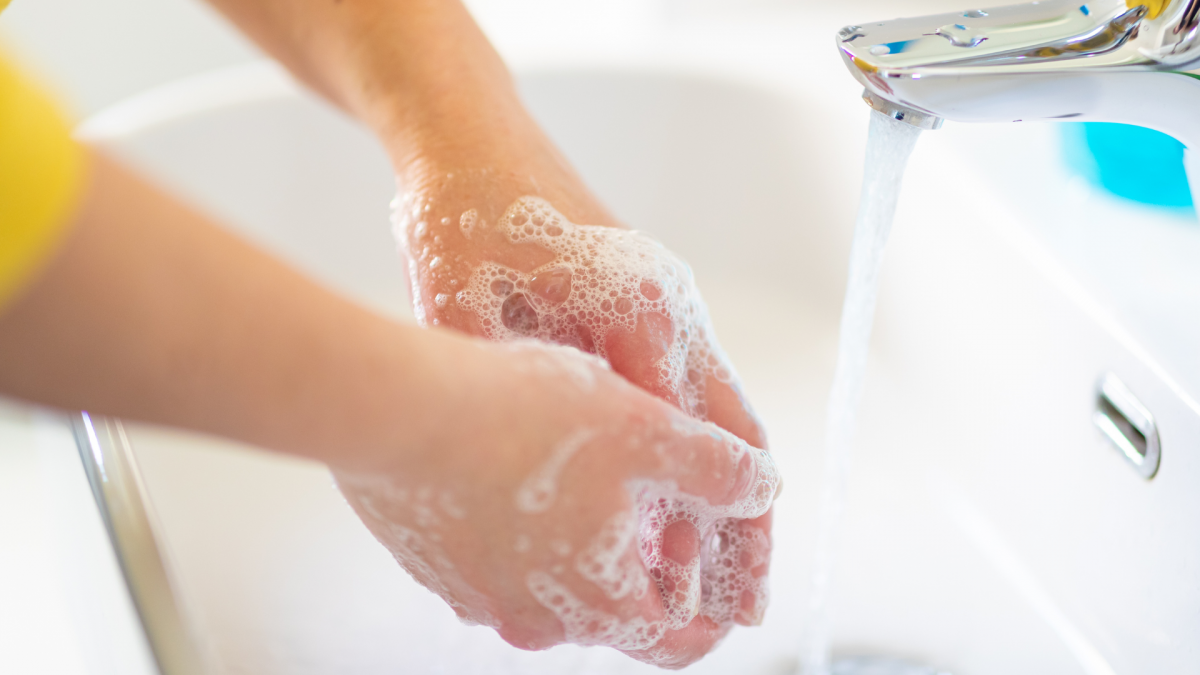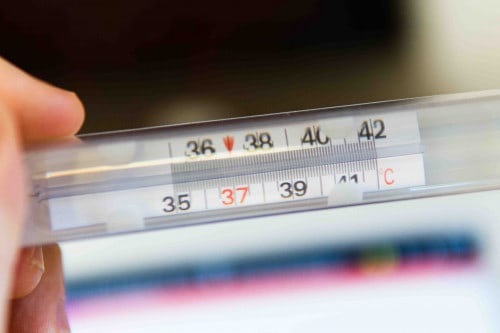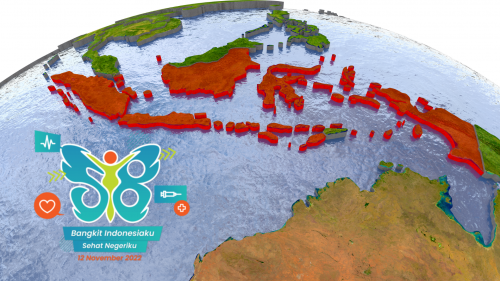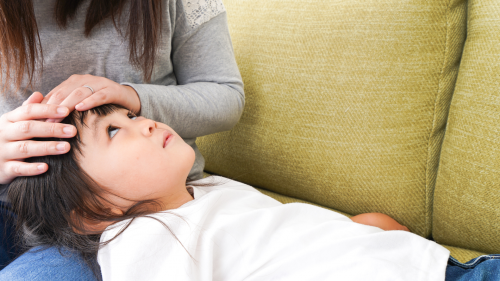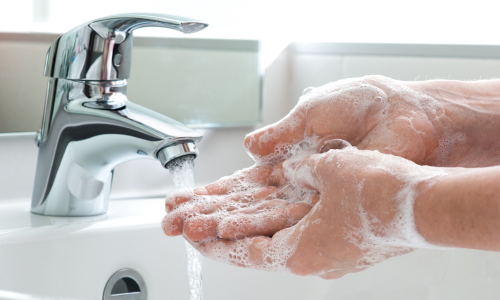Germs are everywhere. Without realizing it, our hands spread germs to other people, to other places or even enter the germs into our own bodies such as when touching our mouth with dirty hands. Not washing hands properly can increase a person's chances of getting the disease.
We already know that hands are a medium of transmission disease, because hands make direct contact with various objects or areas that contain a lot of disease-causing bacteria, especially in this case Salmonella bacteria.
Salmonella infection can also occur if someone touch, kiss, or pet animals such as cats, dogs and birds, which are infected with Salmonella. A person is susceptible to infection if he does not wash his hands after handling the animal or touching its feces.
If someone don't wash hands, Salmonella bacteria will remain on a person's hands, spread to various places, and food that is touched with hands will be contaminated by these bacteria. Salmonella bacterial infection is one of the causes of typhoid fever. Eggs from salmonella bacteria will then move into the digestive tract, causing infection with symptoms such as cold sweat, nausea, vomiting and diarrhea.

Picture 1. Illustration only
Salmonella infection can be more dangerous in the elderly, infants, and people whose immune systems are compromised. In general, people don't have medical treatment or go to the doctor if they are infected with salmonella, because it will go away on its own in a few days. However, it is advisable to go to the doctor if symptoms such as high fever lasts more than a few days, bloody stools and dehydration.
In establishing the diagnosis, usually the doctor will perform a Widal test using a sample of the patient's blood serum, to be dripped with reagents containing Salmonella bacteria that have been killed in the form of O antigens and H antigens. One example of this reagent is BEACON Salmonella 8 Antigen Slide and Tube Test Kit with Control.
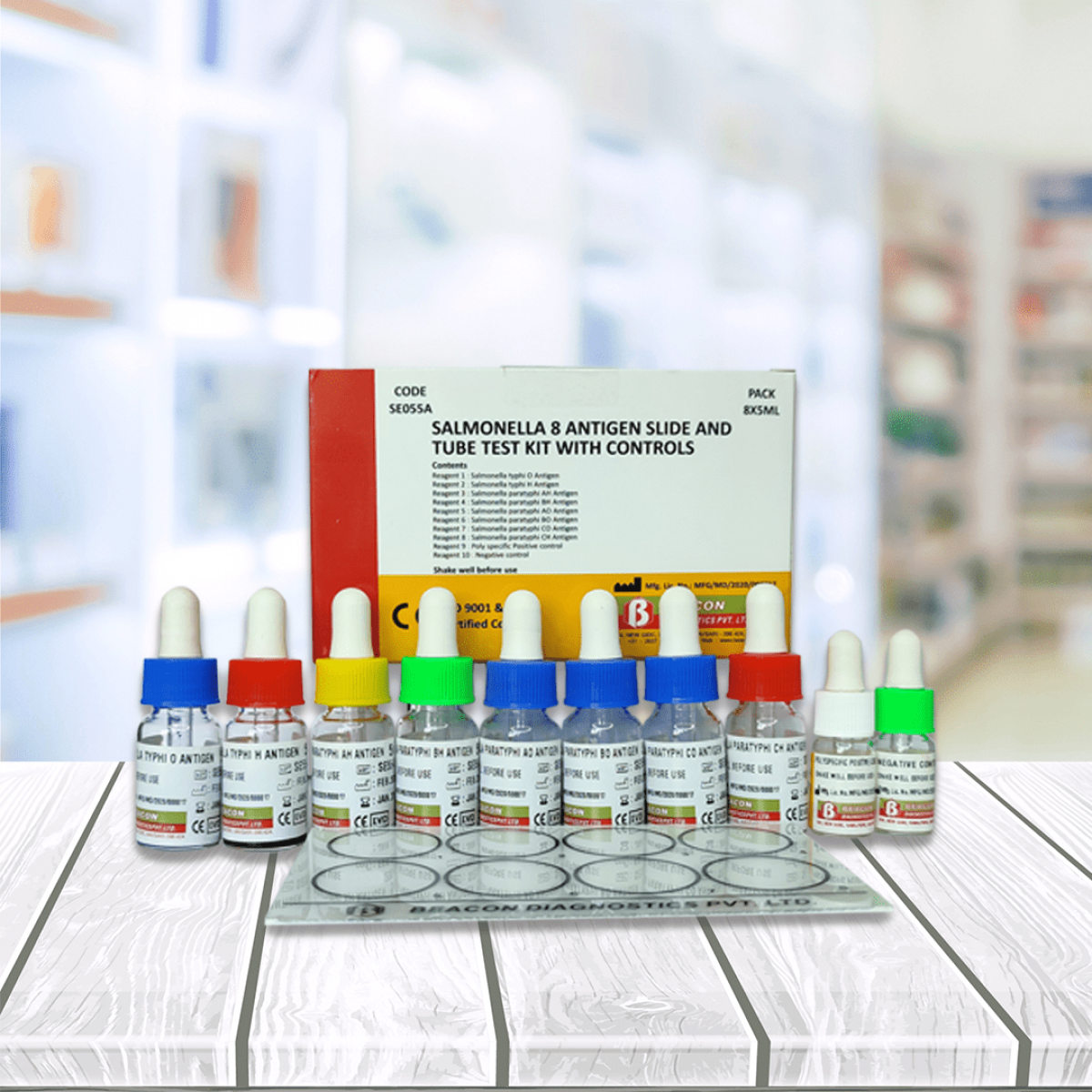
Picture 2. BEACON Salmonella 8 Antigen Slide and Tube Test Kit with Control
From the results of a person's Widal test can be known whether infected with Salmonella bacteria or not. A person is positive for being infected with Salmonella bacteria if agglutination is formed in the test, which means that in a person's body there are antibodies to fight Salmonella bacteria.
For this reason, it is very important to understand that hand washing can prevent, stop the spread and get rid of Salmonella bacteria. Washing hands only with water is not effective enough, soap is also needed to help eliminate germs. Washing hands properly can be done with the following steps:
- Wet hands with clean running water (warm or cold)
- Apply soap on hands
- Rub the soap up to the back of your hands, between your fingers, and under your fingernails for 20 seconds
- Afterward, rinse hands again with water, and dry
Wash your hands thoroughly before and after using the toilet, changing baby's diapers, handling food, and touching pets.
References:
- Centers for Disease Control and Prevention. (2020). Salmonella Infection.
- Centers for Disease Control and Prevention. (2022). Show Me the Science, Why Wash Your Hands?
- Healthy Geezer. (2017). Avoid Salmonella infection with careful hand washing
- Mayo Clinic. (2019). Salmonella Infection
- WebMD. (2022). Salmonella (Salmonellosis)
